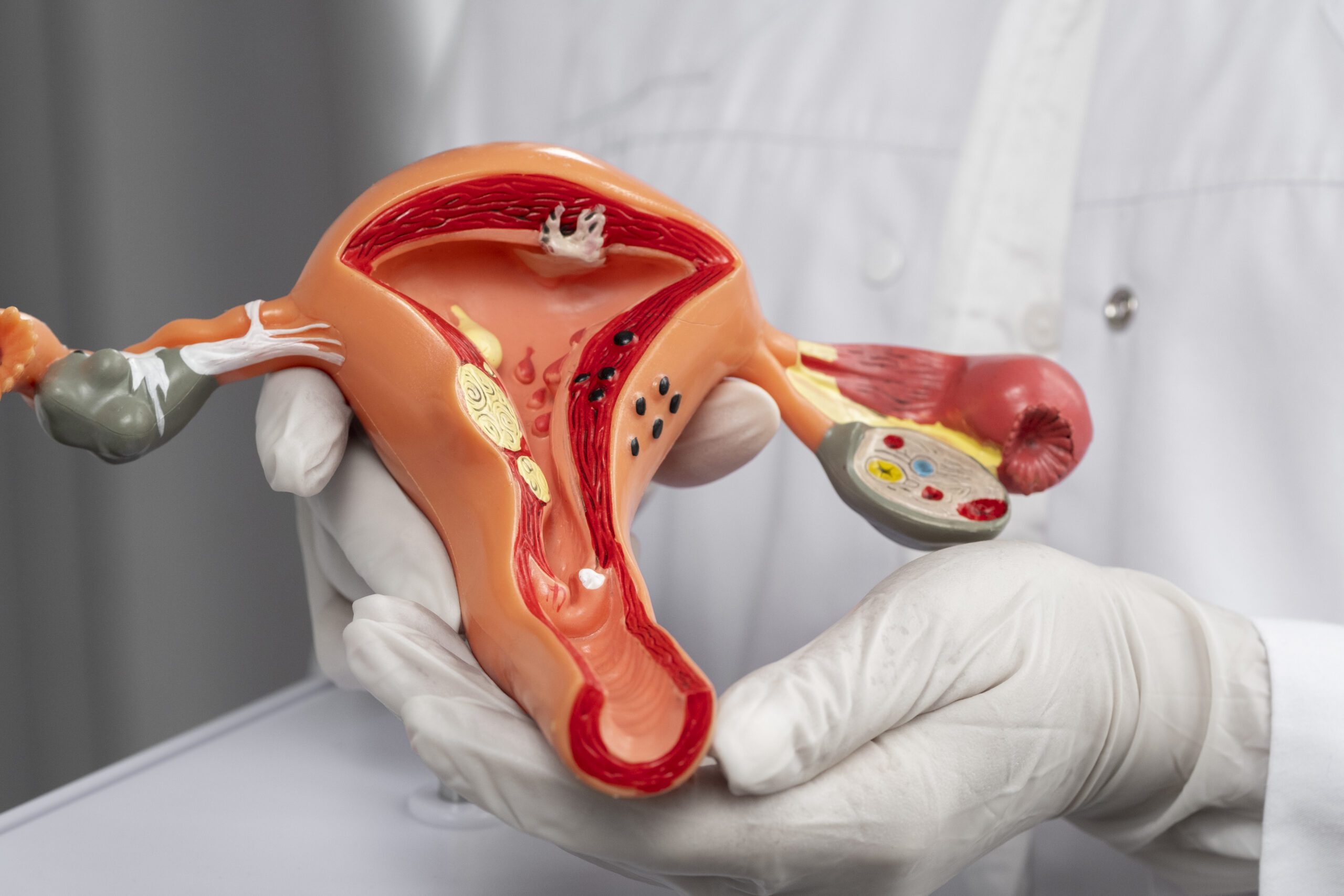
Fibroids, Endometriosis & Your Cycle: What to Watch For
Your period says a lot about your health. For millions of women, heavy bleeding, chronic pelvic pain, and irregular cycles are more than “just a bad period”, they may be signs of underlying uterine conditions like fibroid or endometriosis.
These two conditions are often misunderstood and misdiagnosed, yet they affect your menstrual cycle in profound ways. This blog is all about understanding the symptoms and patterns tied to fibroid and endometriosis—not diagnosis or treatment, just awareness.
What Are Fibroids & Endometriosis?
Fibroids: The Uterine Growths That Mess With Your Cycle
Fibroids are non-cancerous tumors made of muscle and fibrous tissue. They grow in and around the uterus and are highly influenced by estrogen levels. Fibroid can range in size, from pea-sized to large enough to distort the uterus, and may exist singularly or in clusters.
Endometriosis: When Tissue Grows Where It Doesn’t Belong
Endometriosis happens when tissue similar to the lining of the uterus (endometrium) starts growing outside of it—on ovaries, fallopian tubes, and other pelvic organs. This tissue responds to your menstrual cycle, bleeding and inflaming nearby areas during each cycle. The result? Pain, scarring, and unpredictable periods.
Shared Symptoms That Affect the Menstrual Cycle
Though they’re different in nature, both fibroids and endometriosis can cause overlapping symptoms:
- Heavy bleeding that soaks through pads/tampons quickly
- Irregular cycles or spotting between periods
- Painful periods (dysmenorrhea) that may worsen over time
- Pelvic pain that extends beyond menstruation
- Pain during intercourse
- Fatigue, especially around your cycle
These symptoms can make your cycle feel chaotic and hard to manage.
Unique Symptoms That Help Distinguish Each
Fibroid-Specific Symptoms
Fibroids often produce symptoms related to pressure and size, such as:
- A sensation of pelvic fullness or bloating
- Frequent urination due to bladder pressure
- Constipation from rectal pressure
- An enlarged abdomen or uterus, sometimes visibly noticeable
Endometriosis-Specific Symptoms
Endometriosis tends to trigger inflammatory and nerve-related symptoms:
- Pain with bowel movements or urination, especially during periods
- Lower back pain that may feel deep and aching
- Gastrointestinal symptoms like bloating, diarrhea, or constipation
- Persistent fatigue, often paired with brain fog or emotional swings
How These Conditions Disrupt Your Cycle
When fibroids or endometriosis are in play, your period may no longer follow the typical script.
Fibroids Can Cause:
- Menorrhagia: unusually heavy bleeding
- Prolonged periods: bleeding longer than 7 days
- Clotting: visible clumps or thick blood during menstruation
- Spotting: bleeding between regular cycles
Endometriosis Can Cause:
- Shortened or lengthened cycles (e.g., bleeding every 21 or 45 days)
- Unbearably painful periods that require time off work or medication
- Chronic pelvic pain, even when not menstruating
- Frequent spotting and inconsistent flow
Impact on Fertility
Fibroids and Fertility
Depending on their size and location, fibroids can:
- Block fallopian tubes, preventing sperm or egg movement
- Distort the uterus, reducing embryo implantation success
- Increase risk of miscarriage or pregnancy complications
Endometriosis and Fertility
Endometriosis may:
- Damage reproductive organs through scar tissue or adhesions
- Disrupt ovulation or egg quality
- Reduce chances of natural conception
While not every woman with fibroids or endometriosis experiences fertility problems, both are recognized as key contributors to reproductive challenges.
Quality of Life Considerations
The impact of these conditions extends beyond the uterus. Women often report:
- Fatigue and discomfort that interfere with work or school
- Sexual pain or avoidance, affecting relationships
- Social withdrawal or anxiety from unpredictable symptoms
- Feeling dismissed by providers, leading to delayed care
- Emotional exhaustion, including frustration, sadness, or hopelessness
These challenges can take a toll mentally, emotionally, and physically—well beyond the days of your period.
Real-World Impact Examples
- Up to 70% of women with fibroids report their period symptoms interfere with daily life
- Endometriosis affects approximately 1 in 10 women, many of whom endure years before being taken seriously
- These conditions are among the top reasons for missed work, surgery, and fertility consultations
When Symptoms Disrupt Your Life
Your body sends signals when something’s off. Pay attention if you experience:
- Bleeding that lasts longer than 7 days or soaks through hourly
- Pain that stops you from functioning normally
- Consistent fatigue, pelvic discomfort, or painful intercourse
- Changes in your cycle that are new, worsening, or prolonged
While this blog is not offering medical advice, these signs suggest it’s time to advocate for yourself and speak with a qualified healthcare provider.
Conclusion
Fibroid and endometriosis are more than buzzwords, they are real, common conditions that can upend your menstrual cycle, fertility, and overall quality of life. By knowing the symptoms and patterns, you empower yourself to take note of what’s normal, what’s not, and when it’s time to dig deeper.
Your cycle is more than a monthly event, it’s a barometer of your reproductive health. Listen to it. For more information, visit our Blog Section.
All Categories
Recent Posts
Tags
Give them a helping hand
Every donation fuels our mission to combat period poverty. Your generosity brings us closer to menstrual equity.
+234-909-482-1642
inquiries@blossomflow.org




